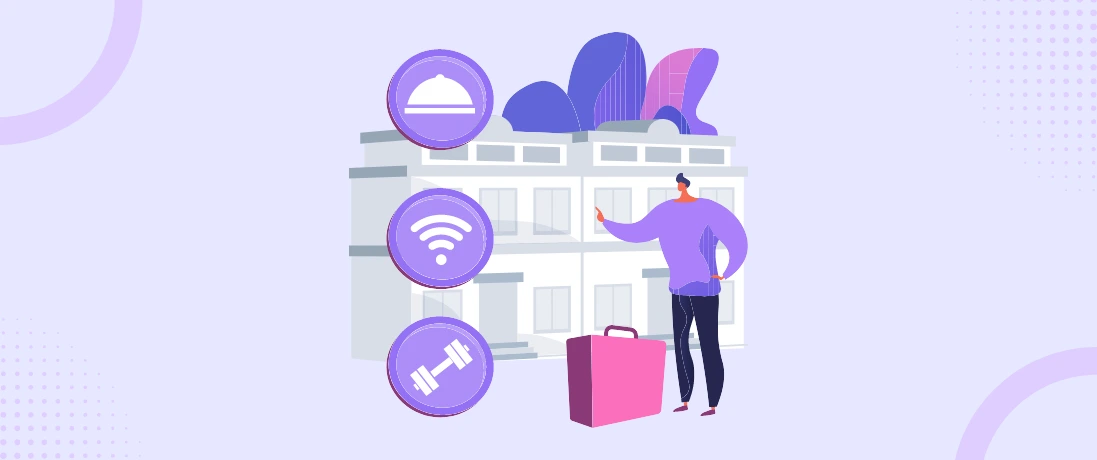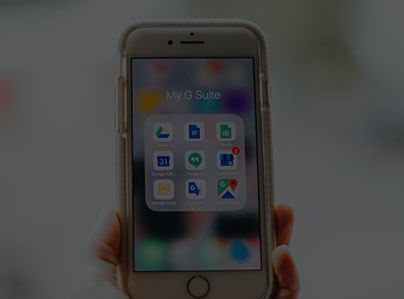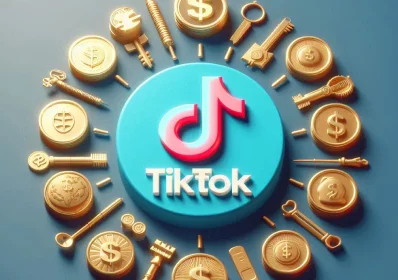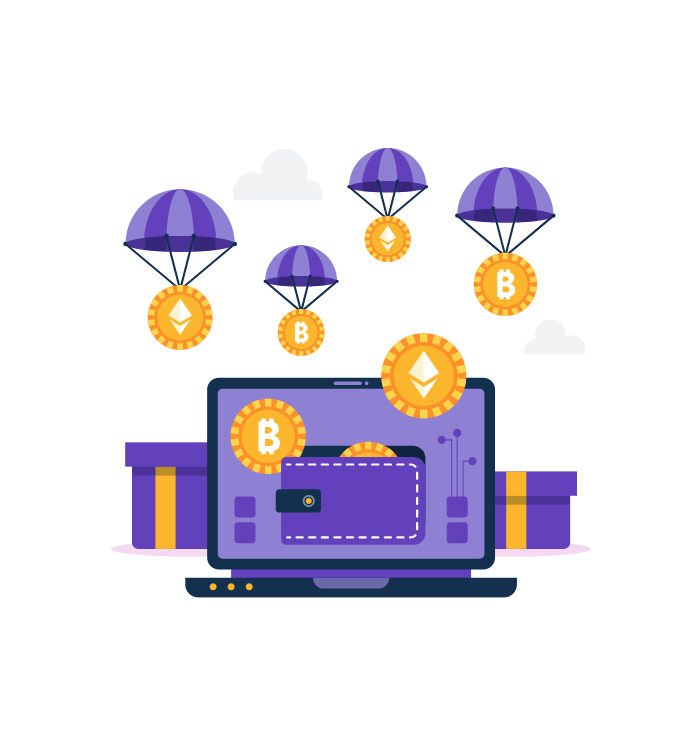How mobile apps are transforming hospitality in 2024?
The hospitality industry has always been at the forefront of adopting new technologies to enhance guest experiences and streamline operations. In recent years, the proliferation of mobile apps has significantly transformed the landscape of hospitality. From booking rooms to ordering room service, mobile apps have become integral to the guest experience. This comprehensive guide will explore the various ways mobile apps are transforming hospitality, providing in-depth insights into their impact on both guests and hoteliers.
Introduction
The hospitality industry is undergoing a digital revolution, with mobile apps playing a pivotal role in this transformation. As technology advances, guests increasingly expect seamless, personalized, and convenient experiences. Mobile apps cater to these expectations, offering a wide range of functionalities that enhance every aspect of a guest's stay. From simplifying bookings to providing virtual concierge services, mobile apps are reshaping the way hotels operate and interact with their guests.
The Rise of Mobile Apps in Hospitality

The rapid adoption of smartphones has paved the way for the widespread use of mobile apps in the hospitality industry. According to a report by Statista, the number of smartphone users worldwide is projected to reach 3.8 billion by 2021. This surge in smartphone usage has created a massive market for mobile apps, prompting hotels to develop and integrate their own applications to stay competitive.
Key Benefits of Mobile Apps for Guests
Convenience:
Mobile apps provide guests with the convenience of accessing hotel services at their fingertips. From booking rooms to ordering food, guests can perform a wide range of tasks without leaving their room.
Personalization:
Mobile apps enable hotels to offer personalized experiences to their guests. By collecting data on guest preferences and behaviors, hotels can tailor their services and recommendations to individual guests, enhancing their overall experience.
Real-Time Information:
Guests can access real-time information about hotel amenities, local attractions, and events through mobile apps. This ensures that guests are well-informed and can make the most of their stay.
Seamless Communication:
Mobile apps facilitate seamless communication between guests and hotel staff. Guests can use the app to make requests, ask questions, and provide feedback, ensuring that their needs are promptly addressed.
Key Benefits of Mobile Apps for Hotels

Enhanced Operational Efficiency:
Mobile apps streamline various hotel operations, such as check-in/check-out processes, room service, and maintenance requests. This reduces the workload for hotel staff and improves overall efficiency.
Increased Revenue:
By offering additional services and upselling opportunities through mobile apps, hotels can boost their revenue. For example, guests can book spa appointments, order in-room dining, or purchase tickets for local attractions directly through the app.
Improved Guest Engagement:
Mobile apps provide hotels with a direct communication channel to engage with their guests. Hotels can send personalized offers, updates, and notifications to keep guests informed and engaged throughout their stay.
Data-Driven Insights:
Mobile apps generate valuable data on guest behaviors, preferences, and feedback. Hotels can use this data to gain insights into guest satisfaction, identify areas for improvement, and make data-driven decisions.
Transformative Features of Mobile Apps in Hospitality

Mobile apps in the hospitality industry come equipped with a range of features designed to enhance the guest experience and streamline hotel operations. Let's explore some of the most transformative features that are revolutionizing the industry.
Mobile Check-In and Check-Out
Traditional check-in and check-out processes can be time-consuming and often result in long queues at the front desk. Mobile apps simplify this process by allowing guests to check-in and check-out using their smartphones. This not only saves time but also enhances the guest experience by providing a seamless and hassle-free process.
Key Benefits:
- Convenience: Guests can check-in and check-out at their convenience, without waiting in line.
- Efficiency: Reduces the workload for front desk staff, allowing them to focus on other tasks.
- Safety: Minimizes physical contact, which is particularly important in the post-pandemic era.
Digital Key Access
Mobile apps enable guests to use their smartphones as digital keys to access their rooms. This eliminates the need for physical key cards and enhances security. Digital key access is particularly appealing to tech-savvy travelers who prefer a modern and convenient experience.
Key Benefits:
- Convenience: Guests can access their rooms without the need for a physical key card.
- Security: Digital keys are encrypted, reducing the risk of unauthorized access.
- Sustainability: Eliminates the need for plastic key cards, reducing environmental impact.
In-Room Controls
Mobile apps allow guests to control various in-room features, such as lighting, temperature, and entertainment systems, directly from their smartphones. This level of control enhances the guest experience by allowing them to customize their room environment to their preferences.
Key Benefits:
- Personalization: Guests can create a comfortable and personalized environment in their room.
- Convenience: Allows guests to control room features without getting out of bed.
- Energy Efficiency: Enables hotels to implement energy-saving measures, such as automatic lighting and temperature adjustments.
Virtual Concierge Services
Mobile apps offer virtual concierge services that provide guests with information and assistance at their fingertips. Guests can use the app to find information about hotel amenities, local attractions, dining options, and more. Some apps even offer chatbot functionalities to answer common questions and provide recommendations.
Key Benefits:
- Accessibility: Guests can access information and assistance anytime, without needing to visit the front desk.
- Personalized Recommendations: Apps can offer tailored recommendations based on guest preferences and past behaviors.
- Efficiency: Reduces the workload for concierge staff, allowing them to focus on more complex guest needs.
Contactless Payments
Mobile apps facilitate contactless payments, allowing guests to pay for their stay, dining, and other services directly through the app. This feature enhances convenience and security, especially in the post-pandemic era where minimizing physical contact is crucial.
Key Benefits:
- Speed: Accelerates the payment process, reducing wait times for guests.
- Safety: Minimizes physical contact, promoting a safer environment.
- Convenience: Guests can manage and review their expenses in real-time through the app.
Real-Time Communication
Mobile apps provide a platform for real-time communication between guests and hotel staff. Whether it's making special requests, reporting issues, or asking questions, guests can communicate seamlessly through the app.
Key Benefits:
- Prompt Service: Ensures that guest requests and issues are addressed quickly.
- Convenience: Guests can communicate with the hotel staff without leaving their room.
- Enhanced Satisfaction: Improves guest satisfaction by providing timely and efficient service.
Personalized Offers and Promotions
Hotels can use mobile apps to send personalized offers and promotions directly to guests. By leveraging data on guest preferences and behaviors, hotels can create targeted marketing campaigns that resonate with individual guests.
Key Benefits:
- Increased Revenue: Encourages guests to take advantage of additional services and promotions.
- Enhanced Engagement: Keeps guests engaged and informed about available offers.
- Personalization: Tailored promotions increase the likelihood of guest interest and uptake.
Integration with Loyalty Programs
Mobile apps can integrate with hotel loyalty programs, allowing guests to earn and redeem points for their stays and other purchases. This integration provides a seamless experience for loyalty program members and encourages repeat business.
Key Benefits:
- Convenience: Guests can easily track and manage their loyalty points through the app.
- Increased Loyalty: Encourages repeat stays and customer loyalty by offering exclusive rewards and incentives.
- Enhanced Engagement: Keeps guests engaged with the loyalty program and the hotel's offerings.
Feedback and Reviews
Mobile apps provide a platform for guests to leave feedback and reviews about their stay. This feedback is valuable for hotels to understand guest satisfaction and identify areas for improvement.
Key Benefits:
- Guest Satisfaction: Allows hotels to address issues promptly and enhance the guest experience.
- Improvement: Provides actionable insights to help hotels improve their services.
- Transparency: Demonstrates a commitment to guest satisfaction and continuous improvement.
Also Read: How to Create a Successful Mobile App-based Startup: A Comprehensive Guide
The Impact of Mobile Apps on Hotel Operations

Mobile apps are not only transforming the guest experience but also significantly impacting hotel operations. Let's explore how mobile apps are enhancing operational efficiency and productivity.
Streamlined Housekeeping
Mobile apps enable housekeeping staff to update room statuses in real-time, ensuring that the front desk is always aware of which rooms are ready for new guests. This streamlines the housekeeping process and improves room turnover times.
Key Benefits:
- Efficiency: Reduces the time taken to prepare rooms for new guests.
- Coordination: Enhances communication and coordination between housekeeping and front desk staff.
- Guest Satisfaction: Ensures that rooms are ready for guests upon arrival, enhancing their experience.
Maintenance Management
Mobile apps allow hotel staff to log and track maintenance requests in real-time. This ensures that maintenance issues are addressed promptly and efficiently, minimizing disruptions to guests.
Key Benefits:
- Efficiency: Streamlines the maintenance process, ensuring quick resolution of issues.
- Guest Satisfaction: Reduces the impact of maintenance issues on guest experience.
- Preventive Maintenance: Allows hotels to proactively address maintenance needs, preventing potential issues.
Inventory Management
Effective inventory management is crucial for hotels to avoid overstocking or running out of essential items. Mobile apps help track inventory levels in real-time, enabling staff to reorder supplies as needed.
Key Benefits:
- Cost Control: Helps reduce waste and control costs by ensuring optimal inventory levels.
- Efficiency: Streamlines the inventory management process, saving time for staff.
- Guest Satisfaction: Ensures that essential items are always available for guests.
Workforce Management
Managing a large workforce can be challenging, especially in the hospitality industry. Mobile apps simplify workforce management by allowing staff to view their schedules, swap shifts, and request time off through their smartphones.
Key Benefits:
- Efficiency: Streamlines scheduling and workforce management processes.
- Flexibility: Provides staff with greater flexibility and control over their schedules.
- Productivity: Ensures that shifts are adequately staffed, improving overall productivity.
Future Trends in Mobile Apps for Hospitality
As technology continues to evolve, mobile apps in the hospitality industry will become even more advanced, offering new features and capabilities. Let's explore some future trends that are set to shape the industry.
Artificial Intelligence and Machine Learning
Artificial intelligence (AI) and machine learning (ML) will play a significant role in the future of mobile apps in hospitality. AI-powered chatbots can handle routine inquiries and requests, freeing up staff to focus on more complex tasks. ML algorithms can analyze guest data to provide personalized recommendations and anticipate guest needs.
Key Benefits:
- Efficiency: Automates routine tasks, reducing the workload for hotel staff.
- Personalization: Enhances the guest experience by providing tailored recommendations and services.
- Insights: Provides valuable insights into guest preferences and behaviors.
Augmented Reality (AR) and Virtual Reality (VR)
AR and VR technologies offer exciting possibilities for the hospitality industry. AR can enhance in-app experiences by providing interactive maps and virtual tours, while VR can offer immersive previews of hotel rooms and amenities.
Key Benefits:
- Guest Engagement: Provides engaging and interactive experiences for guests.
- Informed Decisions: Helps guests make informed booking decisions by offering virtual previews.
- Marketing: Enhances marketing efforts by showcasing hotel features in an immersive way.
Internet of Things (IoT)
The Internet of Things (IoT) is set to revolutionize the hospitality industry by connecting various devices and systems within hotels. IoT-enabled devices can connect seamlessly with mobile apps, allowing guests to control room settings, order services, and receive personalized recommendations.
Key Benefits:
- Convenience: Enhances the guest experience by providing intuitive and responsive services.
- Efficiency: Streamlines hotel operations by automating various processes.
- Personalization: Provides personalized services based on guest preferences and behaviours.
Conclusion
Mobile apps have undeniably transformed the hospitality industry, offering numerous benefits for both guests and hoteliers. From enhancing the guest experience and improving operational efficiency to boosting revenue and supporting sustainability initiatives, the impact of mobile apps is profound. As technology continues to advance, the potential for mobile apps in the hospitality sector will only grow, paving the way for even more innovative and personalized services. For hospitality businesses looking to stay competitive and meet the ever-changing expectations of modern travellers, embracing mobile technology is not just an option—it’s a necessity.
Get a free quote to hire mobile app developers
Recent Blogs:

Top 8 Advantages of On-Demand Apps | Build an...
On-demand apps- Looking to take your business to next level? checkout these top 8 advantage ...
Read More
How does TikTok make money? - 2023 updated
From advertising to sponsored content, learn how TikTok turns user engagement into a profita...
Read More
Blockchain technology is revolutionizing the ...
Read about how Blockchain is revolutionizing supply chain management. It lowers costs, incre...
Read More